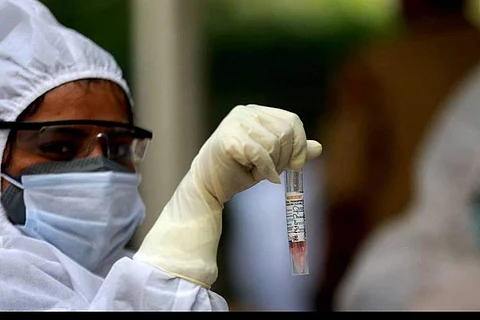

The prevalence of Omicron sub-lineage BA.2 is gradually increasing in India, said Sujeet Kumar Singh, Director, National Centre for Disease Control (NCDC), on January 27.
Just last week, the UK Health Security Agency flagged the BA.2 sub-variant and designated it as a ‘variant under investigation’. In its latest weekly bulletin, the World Health Organisation noted that a number of countries had reported an increase in the BA.2 sub-variant in the last seven days. Addressing a Health Ministry press briefing in Delhi, Singh said that Omicron sub-variant BA.2 is more prevalent in comparison to the BA.1 variant in India, adding that the BA.3 sub-variant has not been detected in India yet. "Earlier, the BA.1 variant was dominant among the samples collected from the travellers. Now in community settings, we have found that the BA.2 sub-variant is gradually increasing," he said.
Talking about increasing cases of Omicron, Singh said that out of the total genome sequencing reports received so far, increasing cases of Omicron have been found in the month of January. Of the total reports received, 1,292 Omicron cases were found in December last year, whereas the number of Delta cases was over 17,000, he said. In January, so far, 9,672 Omicron cases have been found against 4,779 Delta cases.
Mainly three states — Maharashtra, Odisha, and West Bengal — have reported the Delta variant on the basis of genome sequencing, said Singh, adding that it does not mean that only the Omicron variant is being reported everywhere. He emphasised that the Delta variant has not gone yet.
Unvaccinated higher at-risk
Talking about COVID fatalities, he said that the ones who are unvaccinated and people with comorbidities are in the high-risk group. "Around 64 per cent of those who died in Delhi were from the unvaccinated group with major comorbid population," he added. ICMR chief Balram Bhargava said that vaccines have remained beneficial for India.
"Vaccine reduces deaths considerably in the vaccinated population compared to the unvaccinated individuals. Around 95 per cent adult population in the country have received the first vaccine dose, while 74 per cent have been fully vaccinated," said Bhargava, as he urged the states lagging behind in vaccination to ramp up the drive.
